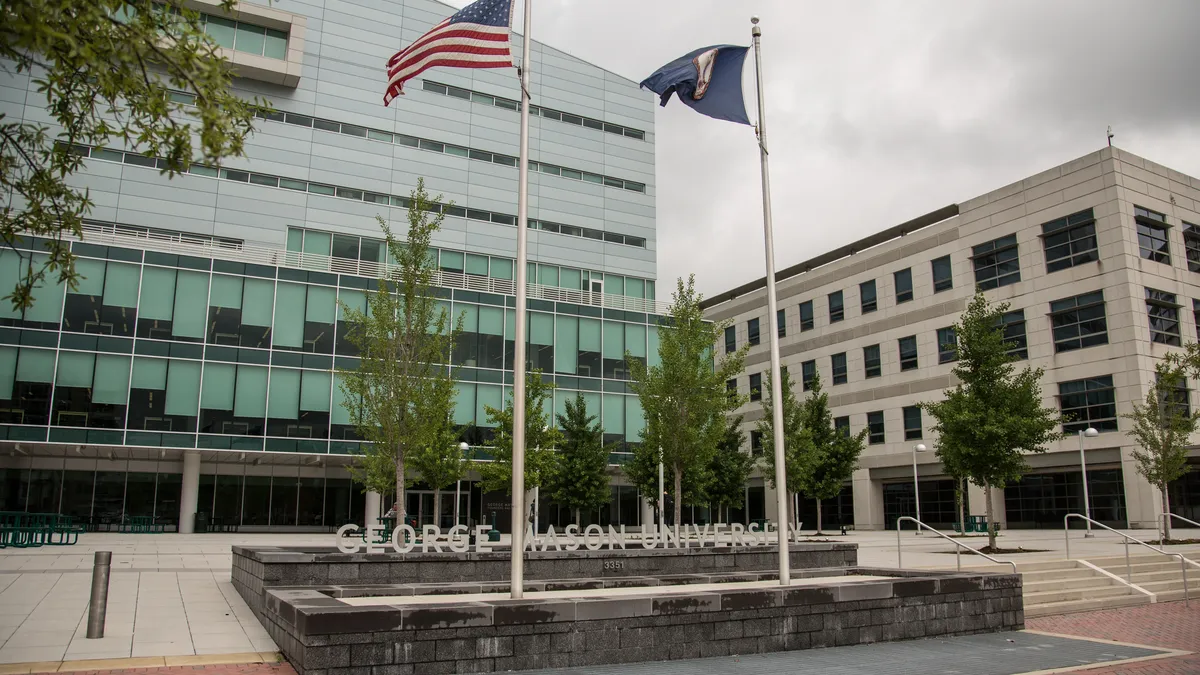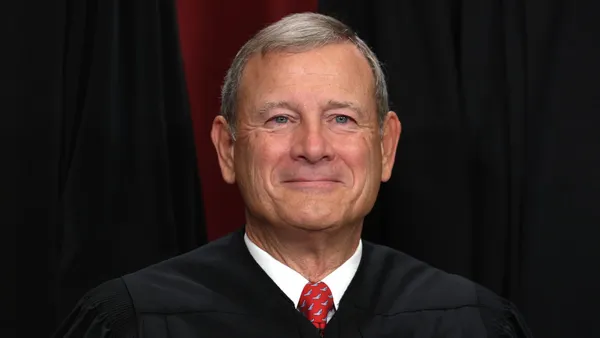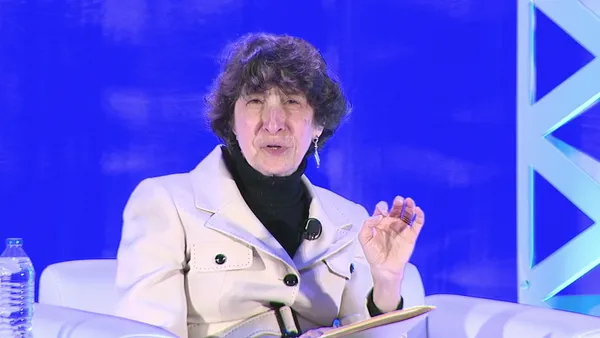Dive Brief:
- George Mason University has provided a medical exemption that allows a professor to go unvaccinated after he claimed the school's COVID-19 vaccine mandate violated his constitutional and federal rights, according to an Aug. 17 press release from his attorneys.
- In his lawsuit, the professor claimed he contracted the coronavirus in March 2020 (Zywicki v. George Mason University, et al., No. 21-cv-00894 (E.D. Va., Aug. 3, 2021)). While he could not obtain a positive test at the time, he later tested positive for COVID-19 antibodies on five separate occasions. An immunologist advised the professor it was "medically unnecessary" to get a COVID-19 vaccine because of his natural immunity.
- In June 2021, GMU, a state university, announced a reopening policy, which required unvaccinated faculty and staff members, "including those who can demonstrate natural immunity from a prior COVID-19 infection," to mask, physically distance and submit to a regular testing regimen. Because of this natural immunity, the professor claimed, he did not need to choose between agreeing to be vaccinated, at the expense of his personal autonomy and constitutional rights, or suffering adverse professional consequences.
Dive Insight:
George Mason's response to the professor's lawsuit may be of interest to the many employers imposing or considering COVID-19 vaccine mandates.
According to the statement provided by the professor's representation, the university will allow him to remain unvaccinated for medical reasons and continue to work on campus. But he still must maintain six feet of distance while holding office hours or attending in-person events, and he will need to complete a COVID-19 test once per week. The announcement did not offer whether the professor would need to wear a mask, but it specified the professor would suffer no professional consequences.
In the statement, the professor said his lawsuit has "increased public awareness that vaccinating the naturally immune is medically unnecessary." "I speak for tens of millions of Americans in the same circumstances I am in," he said, "and I call on leaders across the country to develop humane and science-based approaches as opposed to one-size-fits-all policies."
Employers may note that the professor's lawsuit specifically sought to avoid a medical exemption. "In my case, vaccination is unnecessary and potentially risky. My only other options are to teach remotely or to seek a medical exemption that would require me to wear a mask, remain socially distanced from faculty or students during, say, office hours, and submit to weekly testing," he wrote in an opinion for The Wall Street Journal explaining his decision to sue. And yet, it appears that the outcome of his lawsuit — what he described as a medical exemption — is almost exactly what the professor described he wanted to avoid.
George Mason University has not entered into any settlement with the professor, according to reporting from HR Dive sister publication Higher Ed Dive. The university has not granted any exemptions based on claims of natural immunity, the university said: "Granting such an exemption would not be consistent with current medical science or public health guidance."
Public institutions throughout the U.S. have been waging legal battles over vaccine mandates. Earlier this month, for example, the 7th U.S. Circuit Court of Appeals declined to review the claims of eight students from Indiana University, who said that the school's COVID-19 vaccine mandate violated the Fourteenth Amendment.













